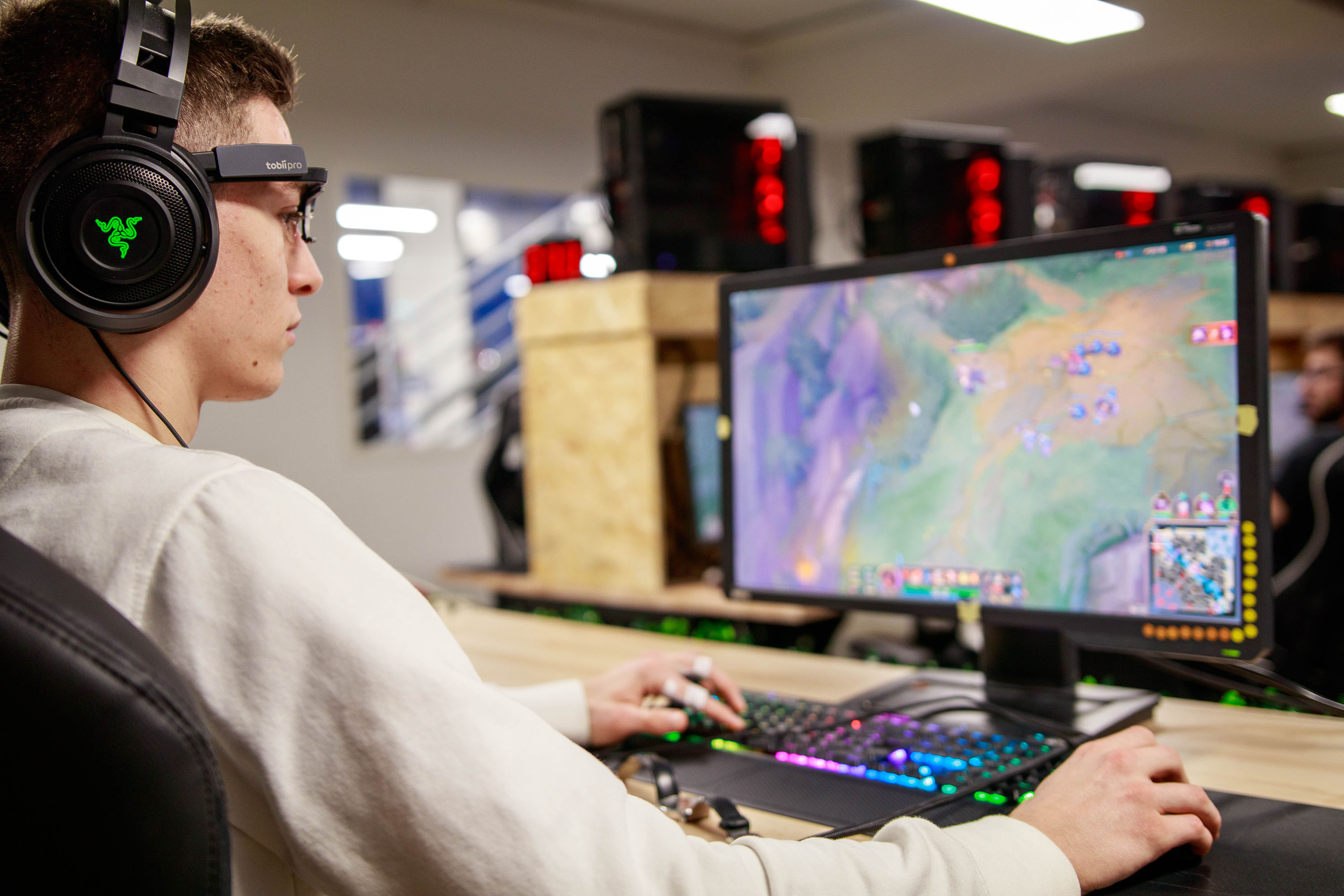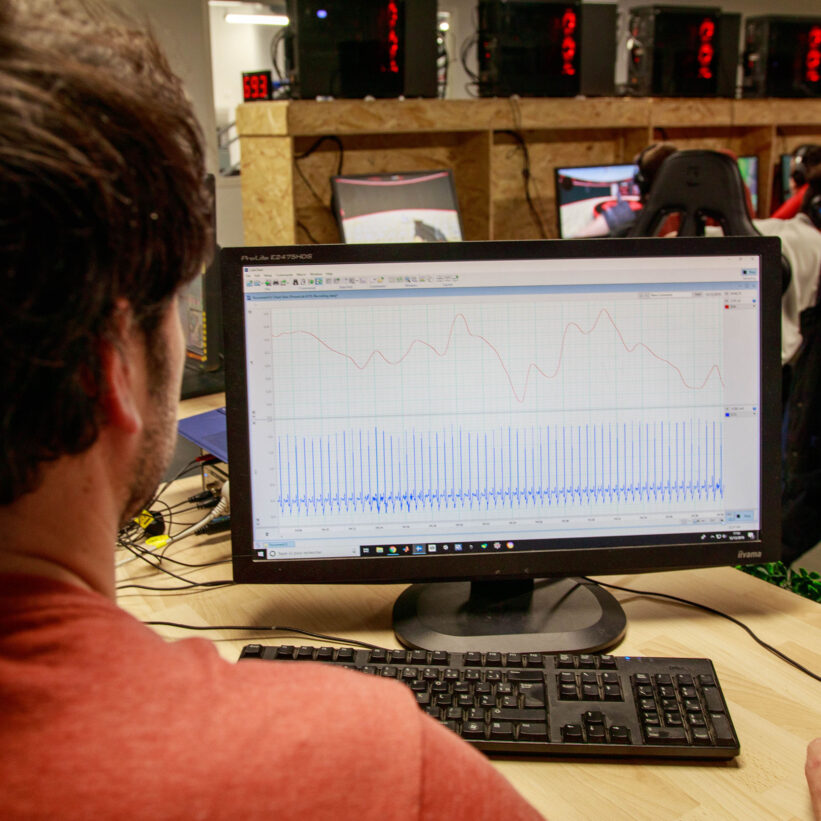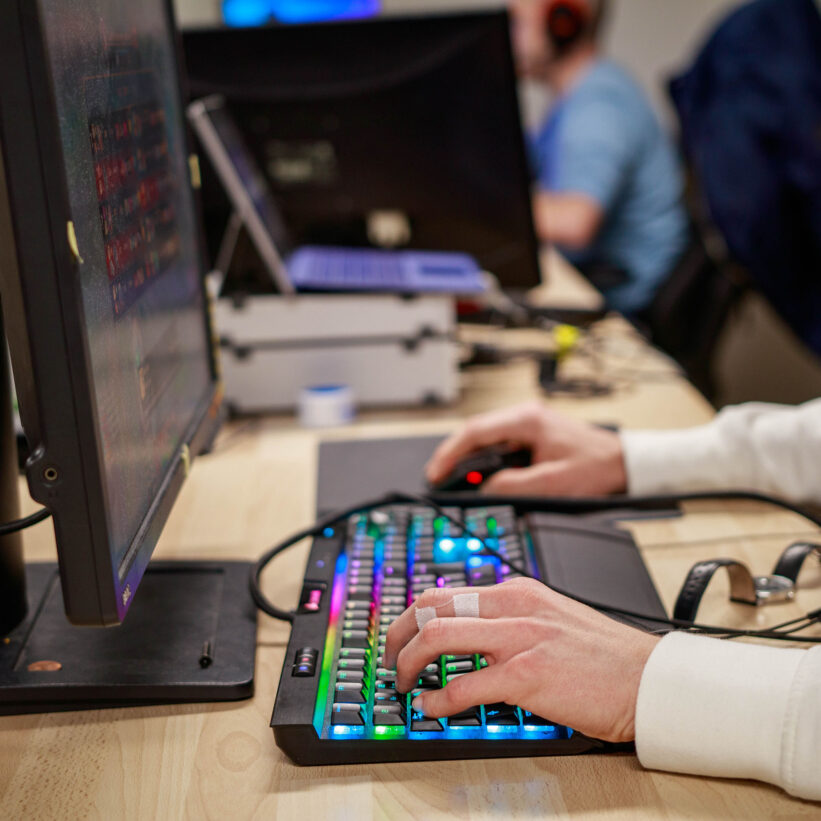

Improving the performance of eSport players
Our approach
Immersion in the heart of eSport performance
Meeting eSport players to understand their needs.
Using dedicated observation grids and interview outlines, we immersed ourselves among a team of League of Legends European top 100 players for a week.


Interviews revealed debriefing optimization is a relevant way of improving performance in eSport. Thanks to players’ quick feedback on their game, they have been able to individualize their training with a focus on situations that are sensitive for them.
An innovative approach at the service of players’ needs
Physiological measurements in addition to the traditional declarative approach.
Physiological signals such as electrodermal activity (skin perspiration), heart frequency, or pupillary dilation are known by scientific literature as means to identify various cognitive states in operational situations: much like one will sweat when scared, our body manifests in many ways what is happening inside our head.
An exploratory approach using measurements of such signals is implemented to go beyond the simple declarative approach, and detect the manifestation of low-key phases in the game.


An innovative data analysis
Make to best use of scientific progress on Machine Learning to go further.
Physiological measurements are analyzed after each game, to try and identify low-key phases.
One of the difficulties with physiological signals is that they can be influenced by a significant number of external factors: perspiration can be linked equally to fear or effort for instance. It is therefore necessary to collect signals from multiple sources, but also to analyze them together as a whole.


In collaboration with INRIA Bordeaux (POTIOC team), we are exploring a new specific approach to this issue: Machine Learning algorithms are developed to allow fusing together all the data collected by the different captors, to confront them to the players’ subjective feedbacks, and to organize the situations considered automatically.
Individual normalization data and cognitive test scores found in clinical literature are also used to refine the analysis.
Operational recommendations regarding training
Coaches and players are very excited about this approach!
The results led to a better understanding of the importance of cognitive capacities in eSport performance.
As such, training exercises and eSport tests approaches have been initiated.
A larger number of eSport players are now testing the debriefing optimization approach that has been developed.






